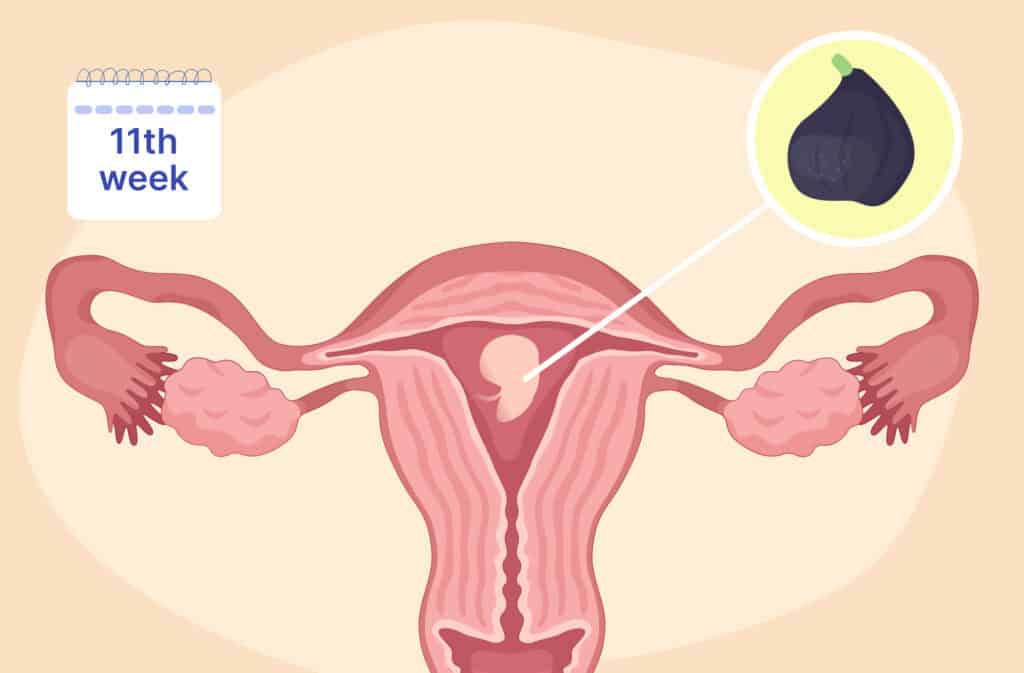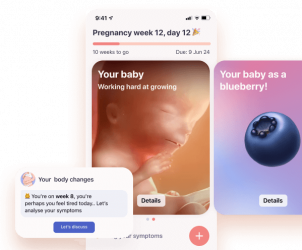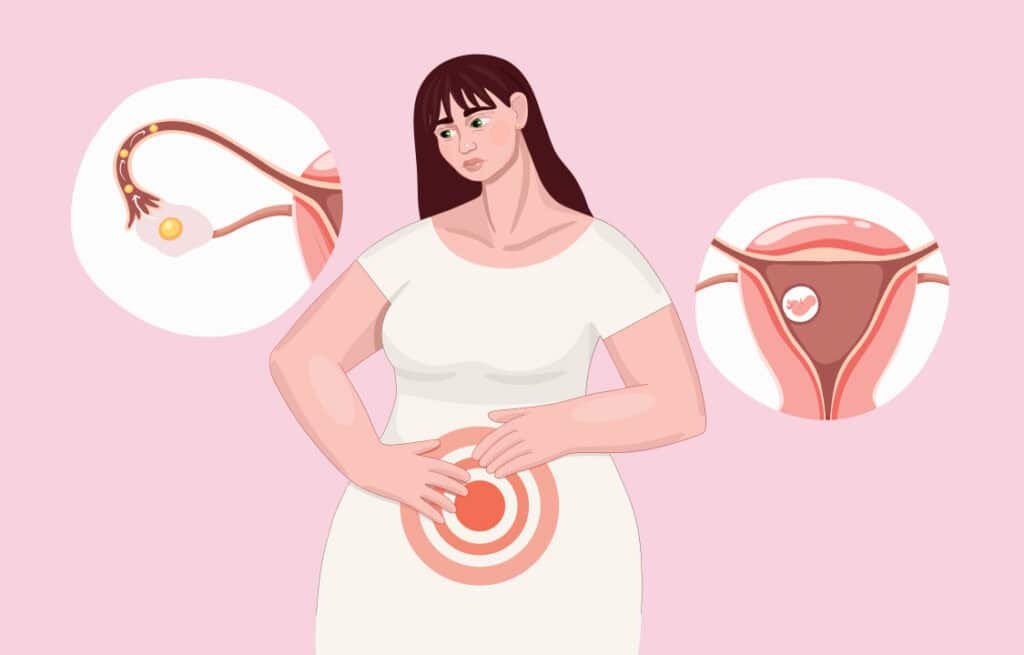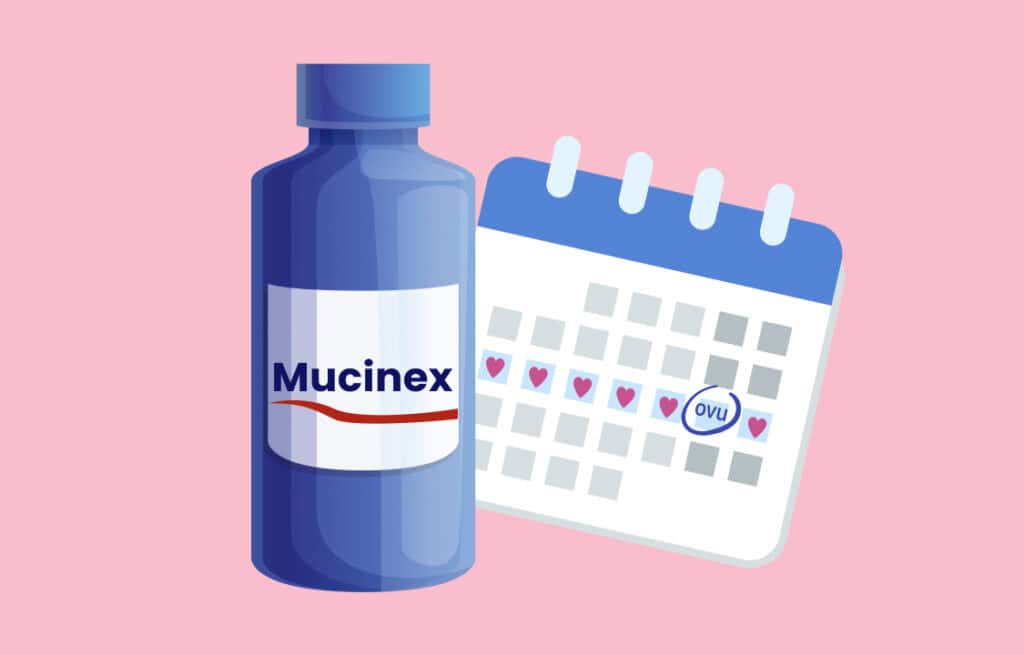Femia > Health Library > Pregnancy > Pregnancy week by week > What’s happening at 11 weeks pregnant: Baby size, development, and self-care
What’s happening at 11 weeks pregnant: Baby size, development, and self-care

- Updated Feb 27, 2025
- Published
CRAFTED BY HUMAN
Crafted by human At Femia, we provide accurate and up-to-date information at every stage of your journey, from trying to conceive, pregnancy and postnatal support. All content is created by a real person based on in-depth research and own professional experience. Femia ensures that you will receive expert advice, strict accuracy and a personalized approach from our authors/medical experts. Learn more about our editorial policy.
FACT CHECKED
Fact checked At Femia Health, we maintain the highest standards of editorial excellence in delivering content focused on helping you conceive, guiding you through pregnancy, and supporting you postpartum. Explore our content review principles to learn how we ensure the accuracy and quality of our health and lifestyle tips for every stage of your journey.
At 11 weeks pregnant, your baby’s skeleton is actively undergoing ossification, where cartilage tissue is gradually replaced by bone. This process began earlier, around 7–8 weeks, when mesenchyme—the precursor to cartilage and bone—first developed and formed the cartilage skeleton. By 9–11 weeks, primary ossification centers have appeared, especially in the clavicles and some skull bones, and the long bones of the limbs are now undergoing ossification as well. You may notice increased hunger, slight bump changes, and some easing of early pregnancy symptoms as you near the end of the first trimester.
Welcome to week 11 of pregnancy! You’re getting closer to the end of the first trimester, which means that some symptoms might begin to ease, but new ones, like hunger and fatigue, may continue. Let’s explore what’s happening with your baby’s growth, common symptoms, and essential self-care tips to help you thrive through this exciting week.

11-week pregnancy symptoms
Hormonal changes and increased blood flow bring a range of symptoms during week 11. Here are the common experiences you might notice:
Constipation and gas
Constipation, gas, and bloating are common during pregnancy, often caused by hormonal changes that slow digestion. To help ease these symptoms, drink plenty of water, eat high-fiber foods such as fruits and vegetables, and stay active to keep things moving.
Heartburn
Heartburn, or acid indigestion, may start to affect you this week, creating a burning sensation from your breastbone to your throat. To prevent or reduce heartburn, avoid lying down after meals, steer clear of fatty, spicy, and fried foods, eat smaller meals, and drink less liquid with your meals.
Conflicting emotions
Pregnancy brings a mix of emotions, and it’s normal to feel excited, nervous, or anxious at times. Prioritize self-care by resting, eating healthy, exercising safely, and sharing your thoughts with someone you trust to help you navigate these feelings.
Fatigue
Fatigue is still common during this time, but you may notice an energy boost in the coming weeks. Keep your energy up by eating nutritious snacks, getting plenty of sleep, taking naps, and cutting out unnecessary tasks to manage your energy levels.
Vaginal discharge
Elevated estrogen levels may cause an increase in vaginal discharge, which is typically clear or milky white and mild-smelling. Contact your healthcare provider if the discharge has an unpleasant smell, causes pain or itching, or appears gray, yellow, or green.
Food aversions
Food aversions, along with cravings, are common during pregnancy, affecting up to 60% of women. These aversions are often due to hormonal changes and a heightened sense of smell, but they typically subside during the second trimester.
Headaches
Headaches can be triggered by hormonal changes, stress, lack of sleep, or dehydration in early pregnancy. Many women experience migraines for the first time during pregnancy, though some may find their usual migraines improve. Managing triggers, staying hydrated, and using acetaminophen (with approval from your healthcare provider) can help alleviate discomfort.
👉Find out more: Exploring week 9: What’s happening with your baby and what symptoms you might feel
Your body at 11 weeks pregnant
At 11 weeks, your body is continuing to adapt to the growing baby, with your uterus expanding to about the size of a grapefruit. Blood volume is still increasing, which helps supply oxygen and nutrients to the fetus. While some early pregnancy symptoms may begin to subside, others, such as fatigue and hunger, might still be present as your body supports the baby’s development.
You may also notice some physical changes, such as breast tenderness, which can continue for a while. As your pregnancy progresses, you might experience changes in your skin, like the darkening of the areolas. Your body is working hard, so it’s important to take care of yourself by eating well, staying hydrated, and getting enough rest to keep up with the demands of this stage of pregnancy.
11-week baby bump
Some women begin to notice a slight rounding of the lower abdomen at 11 weeks, especially if this isn’t their first pregnancy. The uterus is expanding, but it’s still within the pelvis, so the bump may not yet be prominent. Bloating can also contribute to a feeling of fullness.
Baby development at 11 weeks pregnancy
By 11 weeks, your baby is rapidly developing new features, including small bones, teeth buds, and more defined facial features.
- Fingers and toes. By 11 weeks, your baby’s tiny fingers and toes are no longer webbed and have become distinct and elongated.
- Organs are functioning. As the first trimester comes to an end, your baby’s vital organs are in place, and many have started to work. The liver produces red blood cells, the kidneys makes urine, and the pancreas starts to produce insulin. The four chambers of the heart are fully formed, and your baby’s heart is beating.
- Genital development. At the end of this week, your baby’s genitals begin to form. While the external sex organs are starting to develop, the penis and scrotum in boys and the clitoris and labia in girls will not differ significantly for several more weeks. It takes a bit longer for ultrasounds to clearly distinguish between boys and girls.
11-week baby size
At 11 weeks, your baby is about 1.6 inches long, roughly the size of a fig, and weighs between 0.25 and 0.35 ounces. Although still tiny, they’re making big strides in development, with the early stages of bones and muscles beginning to strengthen.
11-week ultrasound
An 11-week ultrasound can reveal significant details of the fetus, including the shape of the head, limbs, and a more proportionate body. With 11-week ultrasound 3D imaging, you may see early facial features and defined limbs. The heart rate is now steady, usually beating at around 140-160 beats per minute, and some providers may be able to let you hear it for the first time.
Real-life 11-week fetus
A real-life 11-week fetus is taking on a human-like appearance with visible arms, legs, fingers, and toes. Bones are beginning to harden, and tiny nails are starting to form on the fingers and toes. The baby’s liver is now producing red blood cells, and their digestive system is continuing to develop.

11 weeks pregnant: Screening options
First-trimester screening assesses the risk of chromosomal abnormalities like Down syndrome, Edwards syndrome, and Patau syndrome. It includes:
- Blood test:
- PAPP-A: Low levels may indicate chromosomal risks.
- Free Beta-hCG: Elevated levels may suggest Down syndrome; low levels could indicate Edwards syndrome.
- Nuchal Translucency (NT) ultrasound: Performed between 11–13+6 weeks, it measures the fluid at the back of the baby’s neck. Increased thickness may indicate a higher risk of chromosomal or structural abnormalities.
👉Find out more:
Entering week 12: Baby development, belly changes, and pregnancy care tips
Week 13 pregnancy: Fetal development, new symptoms, and bump progress
Health tips and self-care at 11 weeks pregnant
Manage fatigue
Fatigue is common at this stage, as your body is working hard to support the growing baby. To combat tiredness, make sure to get plenty of rest, take short naps when needed, and maintain a balanced diet rich in nutrients to keep your energy up. Try to avoid overexertion and listen to your body’s signals.
Stay hydrated
Staying hydrated is crucial during pregnancy to support increased blood volume and help manage common pregnancy symptoms like constipation and swelling. Aim for at least 8-10 glasses of water a day and keep a water bottle handy throughout the day to remind you to drink. Proper hydration also helps prevent headaches and keeps your skin looking healthy.
Exercise safely
While your energy levels might still be low, gentle exercise can help alleviate fatigue, improve circulation, and maintain your overall health. Consider low-impact activities like walking, swimming, or prenatal yoga to stay active. Always listen to your body, and if you feel any discomfort, stop and rest.
Eat nutrient-rich meals
Eating a well-balanced diet is essential during pregnancy. Focus on incorporating fresh fruits, vegetables, whole grains, lean protein, and calcium-rich foods into your meals. Make sure to eat small, frequent meals to help manage hunger and prevent blood sugar fluctuations, and don’t skip meals even if you’re feeling tired.
Take care of your skin
As your belly grows, your skin will stretch and may feel itchy. To prevent dryness and discomfort, apply a good moisturizer regularly. Look for pregnancy-safe creams with ingredients like cocoa butter, shea butter, or vitamin E. Keep in mind that skin stretching is normal, but moisturizing can help soothe any irritation.
Talk to your healthcare provider
During this week, it’s a great time to start discussing any concerns you have with your healthcare provider. Schedule your first official prenatal appointment (if you haven’t already), and make sure you’re staying up to date on any necessary screenings, vitamins, and supplements.
Mind your mental health
Pregnancy can bring about a range of emotions, and it’s normal to feel overwhelmed, anxious, or even excited about the changes. Prioritize your mental health by practicing mindfulness, journaling your feelings, or talking to a trusted friend or professional. Stress management techniques, like deep breathing or meditation, can also be beneficial.
Questions from the Femia community
When will I get a bump?
Many women begin to show a bump between 12 and 16 weeks, though it can vary depending on body type and if this is your first pregnancy. Using a pregnancy-tracking app can help you monitor your progress and pregnancy symptoms.
Can I fly at week 11?
Yes, air travel is generally safe at this stage, though it’s always best to consult your healthcare provider before flying, especially if you have a high-risk pregnancy.
What should I be feeling at 11 weeks pregnant?
At 11 weeks pregnant, you may experience less nausea and fatigue, but some discomfort like bloating, constipation, or mild cramping may persist. Your body is still adjusting, and you might notice slight mood swings. You may also begin feeling your energy returning as your pregnancy progresses.
How can I manage visible veins during pregnancy?
To help with vein visibility, stay hydrated, keep moving, and avoid sitting or standing for extended periods. Compression stockings can also be helpful if needed.
What do babies do in the womb at 11 weeks?
At 11 weeks, your baby is moving around, developing reflexes like sucking and swallowing, and their facial features are becoming more distinct. Their organs are functioning, with the liver making red blood cells and kidneys producing urine. They are also beginning to practice breathing movements, although not yet using the lungs for oxygen.
The bottom line
At 11 weeks pregnant, your baby is growing fast, with more defined features and increasing movement. Your body is also adjusting, and you may begin to notice the first signs of a baby bump. By focusing on nutrient-rich foods, staying hydrated, and allowing yourself plenty of rest, you can support both your body and your baby during this dynamic stage.
References
- “11 Weeks Pregnant: Symptoms, Baby Development & Tips.” BabyCenter, www.babycenter.com/pregnancy/week-by-week/11-weeks-pregnant.
- “Week 11 of Pregnancy: Symptoms, Baby Development & More.” What to Expect, www.whattoexpect.com/pregnancy/week-by-week/week-11.aspx.
- “11 Weeks Pregnant: Baby Development, Symptoms & Tips.” NHS, www.nhs.uk/pregnancy/week-by-week/1-to-12/11-weeks/.
- “Pregnancy Week 11: What to Expect.” American Pregnancy Association, www.americanpregnancy.org/healthy-pregnancy/week-by-week/11-weeks-pregnant/.

Discover the best fertility workouts to increase your chances of conceiving. Learn about yoga poses, exercise intensity levels, and tips for a fertility-friendly routine.

Learn how ovulation and implantation cramps differ in timing, spotting and pain.

Considering using Mucinex to help you get pregnant? Find out whether the Mucinex pregnancy trick is fact or fiction, how to use it, and who should stay away.

